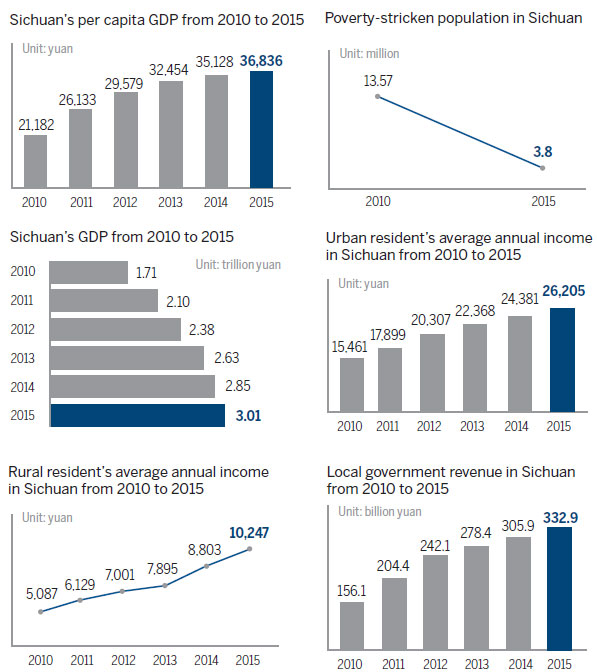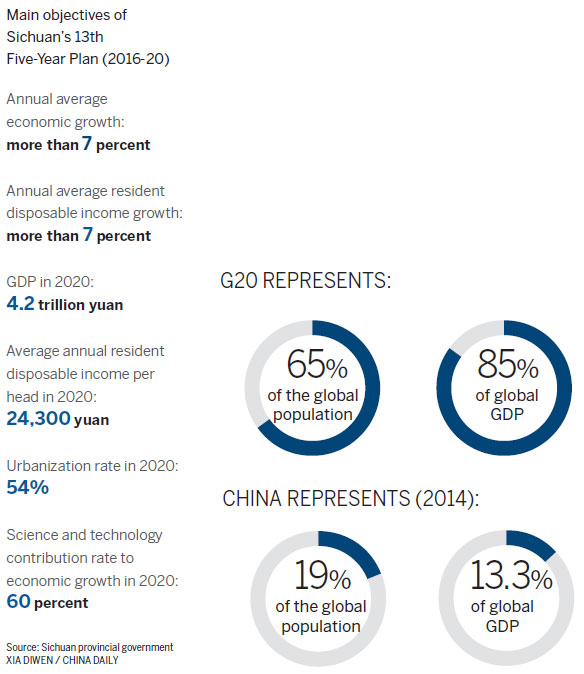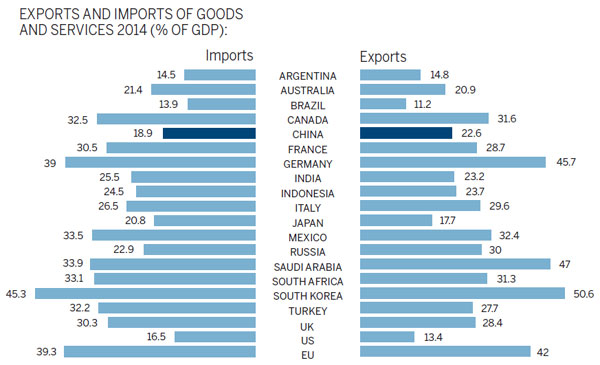Adaptability key to region's rapid growth
Sichuan's government has embraced innovation and implemented bold plans to catapult province's expansion
The robust growth of a host of emerging industries is transforming Sichuan into a strong and competitive provincial economy in China.
In the past five years, the annual output value of Sichuan's emerging industries, including biological medicine, new-energy vehicles and information technology, increased 20 percent annually, hitting 670 billion yuan ($103 billion) last year, 2.79 times of the figure in 2011.
The GDP of Sichuan was 2 trillion yuan ($308 billion) in 2001, ranking the eighth among China's 34 provincial regions, and 3 trillion yuan last year, ranking the sixth. The average annual economic growth rate from 2011 to 15 hit 10.8 percent, 3 percentage points higher than the national average.
Sichuan's economy relies chiefly on innovation and efficiency.
Last year, the overall investment in industry was 750 billion yuan, and the investment in technological upgrading and innovation in the province was 550 billion yuan.
Technological innovation's contribution rate to Sichuan's economic growth is about 50 percent, and the output value of the high-tech industry increased 1.7 times from 2011 to 2015. The province's urbanization rate rose from 40.2 percent in 2011 to 47.7 percent last year.
Sichuan's government also modernized more than 5,000 rural residential communities in the province, and boosted the development of modern agriculture around them.
The government also established an industry development fund to help a number of military industries, which are an important part of Sichuan's economy, transform into civil-use industries.
By the end of last year, the government had initiated the transformation to civil use of 200 military technologies. The authority will also complete 150 military-civil merging industry projects, cultivate 50 large-scale military-civil merging enterprise groups, and support qualified civil enterprises to enter the military industry sector, which is mostly State-run in China.
The authority attaches great significance to the strategic development of emerging, competitive, higher-end fast-growing and service industries.
Sichuan's most competitive sectors are electronic information, equipment manufacturing, energy and resource development, oil and gas chemical engineering, sefstromite and steel, food and beverage, and Chinese herbal medicine.
The key service industries Sichuan plans to develop are e-commerce, logistics, finance, science and technology services, and pensions.
The five higher-end fast-growing industries are shale gas, energy-saving and environmental-protection equipment, information security, aviation and engines and new-energy automobiles.
In addition, the province's economic rise is beneficial for all of its cities, not only the big ones.
Statistics indicated that 14 cities in Sichuan have a GDP of more than 100 billion yuan each, and 110 counties' GDP was over 10 billion yuan last year.
The government has accelerated the construction of the Chengdu National Self-Dependent Innovation Model Zone, Deyang National Key Equipment Research and Manufacturing Base, Mianyang Science and Technology City and a number of other national and provincial level high-tech zones.
The government is also actively establishing transaction platforms for intellectual property rights and innovative projects.
Government at various levels in Sichuan had built as many as 600 incubators by the end of last year to support technological innovation and business startups. The government hopes to attract both migrant workers and businesspeople originally from the province back to their hometowns to set up new businesses.
The provincial government predicts Sichuan's economy will be worth 4.2 trillion yuan in 2020, if its 13th Five-Year Plan (2016-20) is fulfilled.
Sichuan will carry out five development concepts in its development during the 13th Five-Year Plan (2016-20) period: innovation, coordination, greening, open and sharing.
The government will cultivate more growth points, and foster urbanization and innovation.
Sichuan will continue to modernize its industry system, further open up, better protect the local environment and ecology, solve the poverty issue and improve people's livelihoods and public services.
Contact the writers at liyu@chinadaily.com.cn and liyang@chinadaily.com.cn





(China Daily 07/23/2016 page25)














